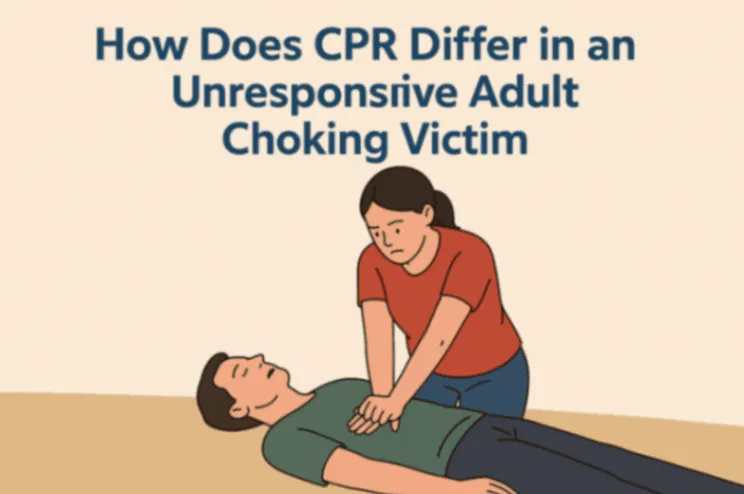Have you or someone close been diagnosed with pleural effusion? It can feel overwhelming. That buildup of fluid around the lungs sounds simple, but it often points to something deeper. Sometimes, it’s related to infections or heart trouble. Other times, it links to cancer.
Either way, this condition changes how the lungs work and how the body responds. But does it always mean the clock is ticking fast? Not really. The answer depends on what’s causing the fluid and how well your body fights it. Many people understandably wonder how long can you live with pleural effusion, and in this post, we’ll break down what really affects that time.
Cause of Pleural Effusion: The First Clue to Life Expectancy
The cause of pleural effusion is the single most important factor in predicting how long someone may live. When fluid collects in the pleural space (the thin area between the lungs and chest wall), it’s reacting to something. That “something” could be harmless or very serious —an infection, a heart condition, or cancer.
-
If the reason is heart failure or an infection, the outcome is usually better.
-
Cancer-related effusions (called malignant pleural effusion or MPE) tend to have a much shorter survival time.
Doctors say MPE is often a sign that cancer is spreading. When this happens, survival can range from just a few weeks to a year. According to data, life expectancy in MPE cases is usually between 3 to 12 months. It varies depending on how aggressive the cancer is and how the body is coping.
Cancer Type & Stage: A Key Predictor in Malignant Effusion
If the pleural effusion is cancer-related, the type and stage of cancer drive survival. Not all cancers behave the same:
-
Lung cancer and lymphoma often have poor outcomes if MPE is present.
-
Ovarian cancer or breast cancer may allow more time, even with fluid buildup.
Some cancers are fast-growing. Others are slow. If the cancer is already widespread at the time pleural effusion is found, doctors often shift focus from curing to comfort care. But if caught early and treated fast, life can be extended.
Stage also matters:
-
Early-stage cancers causing effusion have a better shot at treatment success.
-
Late-stage cancers with pleural fluid usually mean limited options.
Your Overall Health & Performance Status (ECOG Score)
Even with the same diagnosis, two people might live very different lengths of time. Why? Because the body’s strength and function play a big part. Doctors use something called ECOG performance status to rate how well a person is functioning. This scale helps guide treatment choices.
If a person can:
-
Walk and move around easily
-
Eat and care for themselves
-
Do household tasks or light work
Then the chances of living longer improve. But if the person:
-
Is bedridden or extremely weak
-
Needs help with daily tasks
Then life expectancy tends to be shorter, especially if cancer is advanced.
What Treatments Can Help You Live Longer with Pleural Effusion?
Treatment aims to either manage the fluid, target the cause, or both. Here’s how it works based on the underlying issue:
If the cause is cancer:
-
Chemotherapy or radiation may slow tumor growth.
-
Pleurodesis (a procedure that seals the pleural space) may stop fluid from returning.
-
Thoracentesis (fluid drainage with a needle) helps breathing, but must be repeated often.
- Indwelling pleural catheter allows home-based drainage for comfort.
If the cause is an infection:
-
Antibiotics often resolve the issue.
- Tuberculosis or pneumonia-related effusions can disappear with proper treatment.
If the cause is heart failure:
-
Diuretics and fluid restriction work well.
-
Patients often live many more years if heart issues are controlled.
Choosing the right treatment plan—based on the cause and your body’s response—can improve not just survival, but daily quality of life.
How Much Fluid Is Too Much? (Size of Effusion Matters)
Some pleural effusions are small and barely affect breathing. Others fill most of the chest and cause severe shortness of breath.
-
Massive effusions press on the lung and limit oxygen flow.
-
People with massive effusions may need regular fluid drainage.
-
Survival depends on how well the body handles repeated fluid buildup.
In cases where cancer keeps producing fluid, doctors might place a permanent drain to avoid repeated hospital visits.
Other Health Conditions That Affect Life Expectancy
Other health problems can shorten or complicate survival with pleural effusion. Common comorbidities include:
-
Diabetes
-
Kidney disease
-
Chronic infections like tuberculosis
-
Immune system disorders
A patient with multiple health issues may not tolerate procedures or treatments well. They may also heal more slowly. This limits what doctors can offer and often reduces life expectancy.
Specifics for Malignant Pleural Effusion (MPE)
Median Survival
Based on clinical observations, median survival for MPE is around 3 to 12 months. This depends on treatment, cancer type, and patient strength.
ECOG Performance Status
Doctors use the ECOG scale from 0 to 5:
-
0 means fully active.
-
5 means deceased.
-
Patients with a score of 0–2 generally live longer than those with a score of 3–4.
Tumor Type Impact
MPE caused by:
-
Ovarian cancer tends to show better outcomes.
-
Lung cancer, especially non-small-cell type, usually shows a faster decline.
Each tumor behaves differently with MPE, which is why oncologists always individualize treatment plans.
Treatment
MPE treatment focuses on comfort and symptom relief:
-
Pleurodesis: permanently closes the pleural space.
-
Indwelling pleural catheter: allows fluid to be drained at home.
-
Chemotherapy: slows the growth of cancer cells that produce the fluid.
These methods do not cure cancer, but they may extend time and reduce pain.
Life Expectancy Overview: Pleural Effusion Survival Factors
|
Factor |
Impact on Life Expectancy |
|
Malignant vs Benign cause |
Malignant: 3–12 months; Benign: varies widely |
|
Type of cancer (if MPE) |
Lung: lower; Ovarian: may live longer |
|
ECOG score (Performance Status) |
0–2: better survival; 3–4: poorer survival |
|
Size of effusion |
Massive effusion: poorer breathing & survival |
|
Overall health |
Stronger body = longer survival |
|
Treatment access and choice |
Early treatment can extend life |
|
Other illnesses |
Multiple issues reduce survival time |
What Doctors Look At When Predicting Life Expectancy
Prognostic Factors
Doctors look at more than just fluid. They check:
-
How fast does it return
-
What cells are in the fluid
-
How much oxygen the person is using
-
How active the person is
This paints a full picture of what to expect.
Individualized Treatment
No two patients are the same. Some want every treatment possible. Others focus on comfort. Doctors must weigh:
-
The patient’s values
-
How fast the fluid returns
-
How aggressive the disease is
The best care plan is the one that matches the patient’s life goals.
Palliative Care: Living Better, Even If Not Longer
For many, comfort becomes the main goal. Breathlessness, pain, and fatigue can be managed well through palliative services. These include:
-
Oxygen therapy
-
Home-based fluid drainage
-
Pain control
-
Mental health support
Palliative care does not mean giving up. It means living as well as possible, for as long as possible.
Final Thoughts: You’re Not Just a Diagnosis
Life with pleural effusion depends entirely on why the fluid is there. If it’s due to cancer, the outlook may be short, between 3 to 12 months in most cases. But with infections or heart failure, the story could be different—and that's where the question of how long can you live with pleural effusion truly depends on the underlying cause.
Early diagnosis, proper treatment, and support make a huge difference. Every person is different. The key lies in treating the cause, managing the symptoms, and staying strong as long as possible.
Don’t hesitate to talk to your doctor about your goals—whether it's more time, more comfort, or both. And remember, even a short time can be lived meaningfully with the right care.
Frequently Asked Questions
Can pleural effusion go away without treatment?
Only if the underlying cause resolves. For example, effusion from pneumonia may clear after antibiotics. But most cases need treatment or monitoring.
Is pleural effusion always life-threatening?
Not always. Benign causes may not shorten life much. But malignant effusion often means advanced cancer, where time is more limited.
How often does fluid return after being drained?
It depends on the cause. Cancer-related fluid usually comes back in days or weeks unless treated with pleurodesis or a catheter.
What signs mean pleural effusion is getting worse?
More shortness of breath, chest pain, low oxygen levels, or needing more frequent drainage could signal worsening.
Can diet or lifestyle changes help manage pleural effusion?
While they can’t cure it, reducing salt, staying hydrated, and avoiding smoking can support lung and heart health, especially in heart failure cases.
Reviewed by







